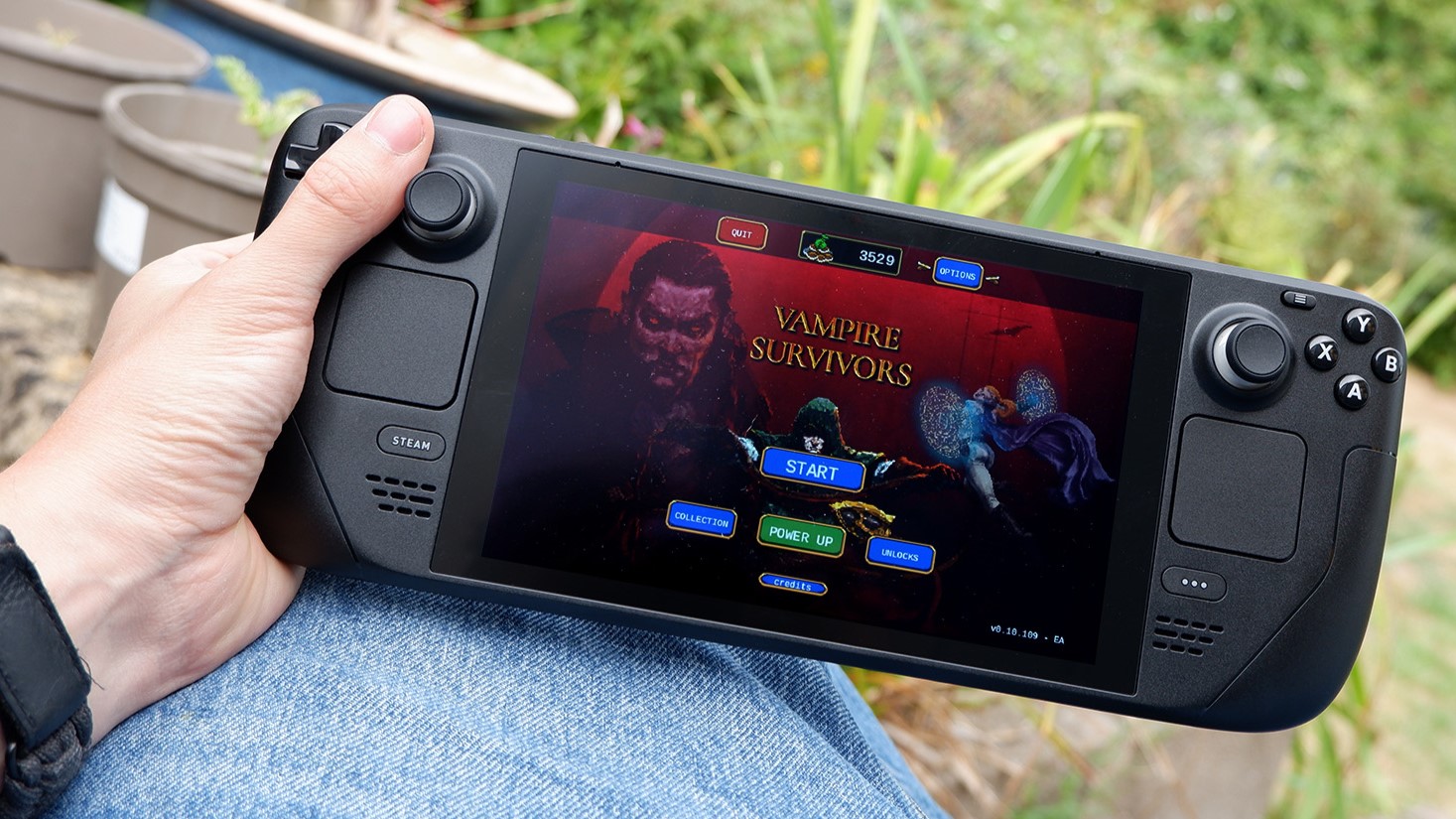
Swapping to a new screen is "a bigger amount of work than people are assuming it would be."
The hardware in Valve’s 2021 Steam Deck can run circles around Nintendo’s 2017 Nintendo Switch, but there’s been one point of comparison where Nintendo’s had the upper hand for the last year: the screen. The Switch OLED model debuted just six months before the Steam Deck, and once you go OLED on a TV, phone, or gaming handheld, it’s pretty hard to leave those rich colors and deep blacks behind. The Steam Deck has just passed its one year anniversary, and for the whole year I’ve seen one question about the Deck pop up more than any other: is Valve going to make an OLED model?
The short, polite answer, from Valve’s Pierre-Loup Griffais, is that Valve “understands the limitations of the current tech that’s in the Deck, in terms of the screen.”
“We also want it to be better. We’re looking at all avenues,” he says. But the longer answer is that there’s a lot more to swapping out a screen than just… swapping out a screen.
“I think people are looking at things like an incremental version and assume that it’s an easy drop-in,” Griffais says. “But in reality, the screen’s at the core of the device. Everything is anchored to it. Basically everything is architected around everything when you’re talking about a device that small. I think it would be a bigger amount of work than people are assuming it would be. […] I don’t think we’re discounting anything. But the idea that you could just swap in a new screen and be done—it would need more than that to be doable.”
When Valve was designing the Steam Deck, the flexibility of the LCD panel was actually one of its top priorities—specifically making the backlight be able to go as dim as possible for playing comfortably in low light, and the ability to alter the refresh rate to preserve battery life. Griffais says that as far as he knows that should be possible on an OLED, too, but it requires some specific configuration.
(Image credit: Jsaux)
– The best Steam Deck games
– The best Steam Deck accessories
– What we want to see in a Steam Deck 2
“It’s just something you have to plan ahead. When we were working on this screen, we made sure these could be supported, even if the refresh rate switching wasn’t ready at release. It was really important to us that all that would be supported. So it’s something that you need to keep in mind when you’re evaluating and selecting possible options. But there’s nothing about LCD vs OLED, different screen technologies that makes that a dealbreaker. It’s about how you’re designing the whole system, and what’s in between the screen and the SOC (system-on-a-chip).”
I think it’s likely the Steam Deck’s eventual successor uses an OLED, but after talking to Griffais, I’m not expecting an incremental update from Valve like the Steam OLED. If there are plans for one, Valve’s certainly playing it close to the vest.
In the meantime, Steam Deck owners who miss OLED colors can at least try VibrantDeck, a nice little plugin that lets you bump up the display saturation without turning your games into full-on Lisa Frank paintings. Or you can go absolutely wild with it. I’m not the color police .



